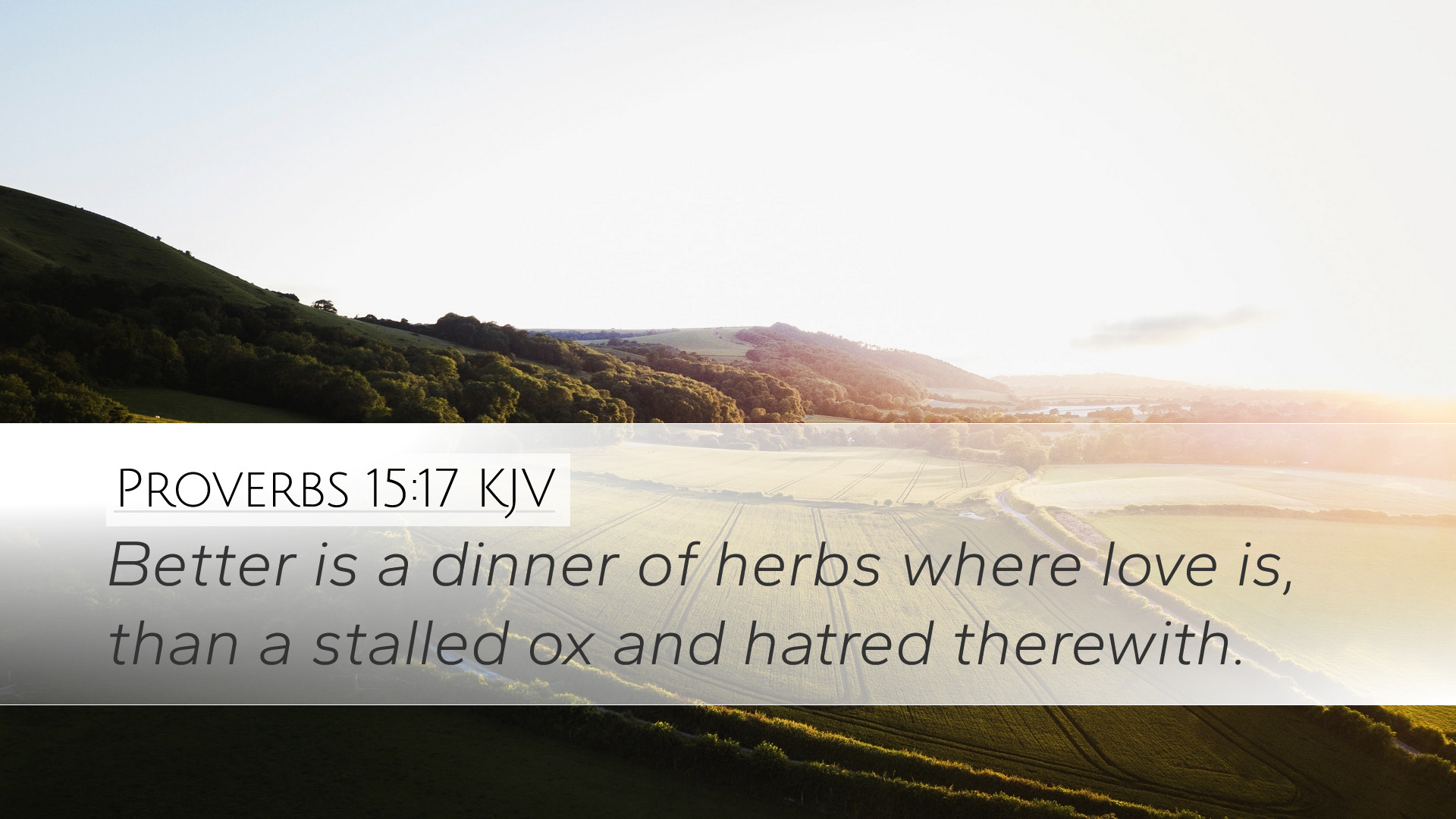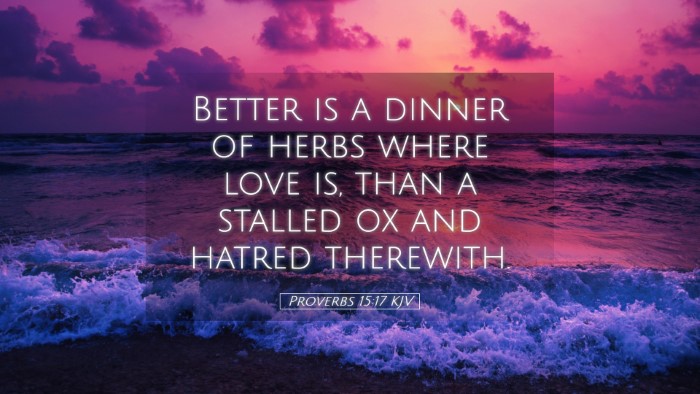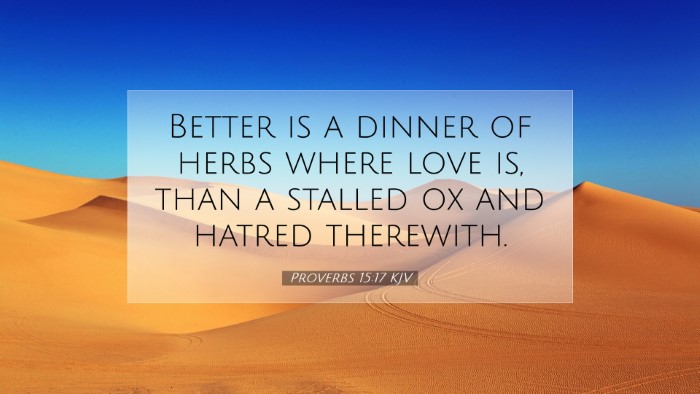Commentary on Proverbs 15:17
Proverbs 15:17 states: "Better is a dinner of herbs where love is, than a stalled ox and hatred therewith." This verse encapsulates a profound truth regarding the value of love and harmony over material wealth and abundance. The following commentary integrates insights from several renowned public domain commentaries, providing a rich exploration of this verse for pastors, students, theologians, and scholars.
Contextual Overview
The Book of Proverbs is a collection of wise sayings attributed primarily to Solomon, offering guidance on how to live a life that honors God. Proverbs 15, like much of the book, contrasts wisdom with folly, the righteous with the wicked, and underscores the importance of interpersonal relationships. The choice presented in this verse highlights a fundamental theme in biblical wisdom literature: the prioritization of spiritual and relational values over physical and material comforts.
Verse Analysis
-
Contrast of Abundance vs. Love:
At first glance, the imagery of a "stalled ox" symbolizes great feasting and prosperity, which many would consider desirable in a meal. In contrast, "a dinner of herbs" represents modest sustenance. However, the proverb assertively concludes that such abundance is not valuable if it is accompanied by hatred. Here, love is placed as the highest good, suggesting that meaningful relationships transcend material wealth.
-
The Nature of True Contentment:
Matthew Henry states that genuine contentment is found not in external wealth but in the love and fellowship shared among people. He emphasizes that love is the chief ingredient that makes any meal enjoyable. The presence of love transforms the simplest of meals into a rich feast, while the most opulent fare is hollow without it.
-
The Dangers of Materialism:
Albert Barnes notes that the pursuit of wealth can often lead to discord and hatred within families and communities. This verse serves as a cautionary reminder of the potential bitterness that wealth can foster when love is absent. The contrasting elements in the proverb urge individuals to evaluate their priorities, examining whether they seek peace and love over riches.
Theological Implications
This proverb invites reflection on several theological themes:
-
Love as a Cornerstone:
Emphasizing the biblical notion that God is love (1 John 4:8), this verse resonates with the understanding that true fulfillment arises from love. In community, love becomes a reflection of God's nature and a means of experiencing His grace.
-
Material Wealth and Spiritual Poverty:
The spiritual dimension underscored in this verse aligns with Jesus's teachings in the New Testament, particularly in Matthew 6:19-21, where He advises not to lay up treasures on earth. A heart focused on love aligns with God’s will, while one anchored in materialism may lead toward spiritual emptiness.
Practical Applications
The implications of this verse are profound for daily living:
-
In Relationships:
Individuals are encouraged to prioritize love in their relationships. Whether in the family, church, or workplace, the presence of love fosters harmony and fulfillment, whereas the lack of it leads to alienation and strife.
-
In Ministry:
For pastors and church leaders, this verse serves as a reminder that the focus of ministry should not solely be on numbers and material resources but on nurturing love and community among believers.
-
In Personal Reflections:
Believers can reflect on their own lives, assessing whether they are placing appropriate value on love and relationships compared to their pursuits of material gains. This self-evaluation promotes a lifestyle that mirrors Christ’s love for others.
Conclusion
Proverbs 15:17 serves as a theological and ethical guide that transcends time. In a world often preoccupied with wealth and status, this verse calls believers to recognize the supreme importance of love and relationships. As stated by Adam Clarke, the richness of life is found not in the abundance of possessions, but in the abundance of love shared with others. For those pursuing a life aligned with God's will, this insight remains ever relevant and transformative.


